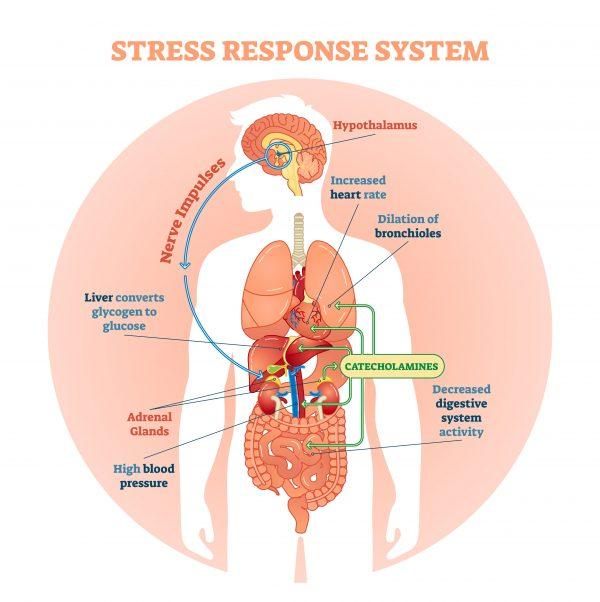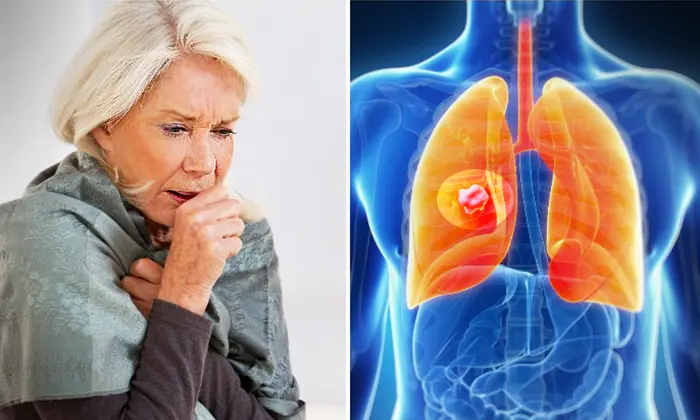The fight-or-flight response, also known as the stress response, is a built-in defense system that keeps us safe in the presence of any perceived threat or demand. If you are facing danger, or any sort of challenge, your nervous system will dispense stress hormones such as adrenaline and cortisol. You can tell that your defense system has been activated because your heart rate will increase, your breath will quicken, and you may feel your muscles tightening up. The benefits of stress include increased focus, sharpened senses, and even extra physical strength.

Stress Response System(©Shutterstock | VectorMine)





